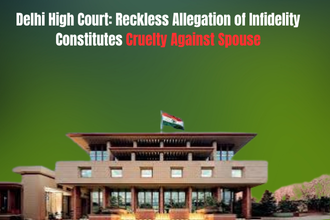In a landmark judgment that strengthens the finality of judicial decisions, the Supreme Court has reiterated the applicability of the principle of res judicata in criminal law. The decision in S.C. Garg v. State of Uttar Pradesh & Anr. clarifies that factual findings rendered in a criminal case—after a full trial—bind the parties in any subsequent proceedings based on the same cause of action.
This judgment not only settles an apparent judicial divergence but also reaffirms the integrity of judicial pronouncements in criminal matters. Delivered by a bench comprising Justices Pankaj Mithal and Prashant Kumar Mishra, the verdict underscores that litigants cannot re-litigate issues already conclusively decided, thereby preventing abuse of legal processes.
What is Res Judicata in Criminal Law?
Res judicata is a legal doctrine that bars the re-litigation of issues that have already been adjudicated by a competent court. Though traditionally rooted in civil law, the Supreme Court has repeatedly clarified that the principle also holds good in criminal proceedings, especially where findings have been made after a full-fledged trial.
The landmark ruling in Pritam Singh & Anr. v. The State of Punjab, AIR 1956 SC 415, had first affirmed that res judicata applies in criminal matters as well. However, in subsequent decisions like Devendra v. State of Uttar Pradesh (2009) 7 SCC 495 and Muskan Enterprises v. State of Punjab [2024 LiveLaw (SC) 1041], questions arose about its limited applicability in proceedings such as quashing petitions under Section 482 CrPC.
The present ruling clarifies this confusion and draws a crucial distinction based on the stage and context of the proceedings.
Case Background: Cheques, Demand Drafts & A Fraud Allegation
The matter arose out of a business dispute involving dishonoured cheques. The appellant, S.C. Garg, had received eleven cheques from Tyagi (the drawer) in settlement of dues. All cheques bounced due to insufficient funds, prompting Garg to initiate proceedings under Section 138 of the Negotiable Instruments Act, 1881.
In parallel, Tyagi issued three demand drafts to settle separate liabilities. During the NI Act trial, the court convicted Tyagi and held that the demand drafts were not towards the cheque liabilities but for other unrelated debts.
Later, Tyagi filed an FIR under Section 420 IPC (cheating), claiming that Garg had fraudulently encashed the cheques despite receiving payment through demand drafts. When the High Court refused to quash this FIR, Garg approached the Supreme Court.
Key Legal Issue: Can Tyagi Reopen a Settled Issue?
The core issue was whether Tyagi could maintain a second criminal proceeding (cheating under IPC) based on facts already adjudicated in the NI Act case. The earlier judgment had categorically recorded that the demand drafts were not for cheque payments. Thus, Tyagi’s subsequent allegation amounted to a re-litigation of an issue already settled.
Supreme Court’s Observations and Ruling
Setting aside the High Court’s refusal to quash the FIR, the Supreme Court held that the second prosecution was barred by res judicata and constituted an abuse of legal process.
“Tyagi cannot maintain a prosecution on the basis of allegations which were precisely his defence in the earlier proceedings wherein he was an accused,” Justice Prashant Kumar Mishra wrote in the judgment.
The Court distinguished the Devendra and Muskan Enterprises rulings, noting that those cases were decided at the Section 482 CrPC stage, where no final findings on merits were given. In contrast, the NI Court had conducted a full trial and convicted the drawer based on factual findings.
Therefore, the principles laid down in Pritam Singh, Bhagat Ram, and Tarachand Jain applied squarely to the present case.
Important Legal Takeaways
- Finality in Criminal Proceedings: Once a criminal court records a categorical factual finding after a trial, it binds the parties in any future proceedings based on the same facts.
- Section 420 IPC Cannot Be Misused: Filing a cheating case to undo a criminal conviction is impermissible when the court has already determined that no fraudulent act occurred regarding the same transaction.
- Distinction Based on Procedural Stage: Res judicata does not apply to quashing petitions under Section 482 CrPC where no decision on merits was taken. But it does apply to final judgments in criminal trials.
- Prevention of Double Jeopardy: The ruling serves as a check against double prosecution and protects individuals from being dragged into fresh litigation over the same facts.
Implications for Legal Practice
This judgment has wide implications for criminal litigation strategy. Defendants now have a strong precedent to seek quashing of FIRs or chargesheets that attempt to re-open issues already settled in earlier criminal trials.
It also puts litigants and complainants on notice: repeat litigation on settled issues will not be tolerated, and such actions may be struck down as abuse of process.
Conclusion
In S.C. Garg v. State of Uttar Pradesh & Anr., the Supreme Court has delivered a crucial judgment restoring the sanctity of judicial findings in criminal cases. By affirming the applicability of res judicata, the Court ensures that the same set of facts cannot become the basis of multiple legal proceedings, especially after a conclusive trial.
This decision strengthens the rule of law, prevents forum shopping, and enhances judicial economy—ensuring that courts are not burdened with redundant or frivolous cases.


